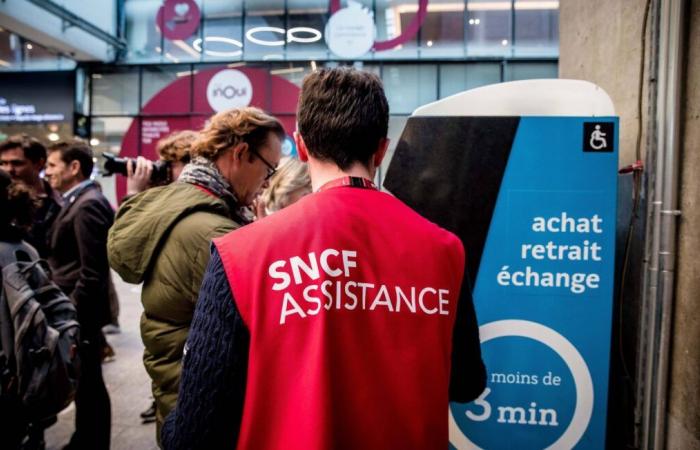Will the trains run on the weekend of May 8? In the absence of agreement with the management on their demands, several SNCF unions have announced a wide strike on this week of bridges. Hallowed hours, arduousness, instability, organizations ask controllers and drivers to mobilize this Monday, May 5, in order to obtain wages from management. A new strike that questions the state of social dialogue between the SNCF and the unions, where conflicts often end in the same way.
“The strike is not an end in itself,” explains Julien Troccaz, Cheminot and Federal South-Rail secretary. When employees are mobilizing, this should push for negotiations. Today the unions regret the abandonment by the management of conflict management upstream, and ensure that efforts are made so as not to lead to the strike with each negotiation. “We are organizing meetings where we present our claims, why we think they are legitimate, how to finance them … In response we are presented with the economic context as a fatality, without alternative to discussion. »»
At the heart of the “social cauldron”
On wages in particular, unions regret the establishment of “working groups”, too slow, and not allowing them to avoid conflict. SNCF, through its operating director Christophe Fanichet, assures that new negotiations are not necessary, a global revaluation of 2.2 % having already been implemented in 2025. A figure disputed by trade union organizations which recall that this increase takes into account automatic revaluations, lowering the additional increase to 1 %.
For Dominique Andolfatto, a sociologist specializing in social conflicts and unionism, the SNCF is not solely responsible for these constant tensions: “I like to talk about social cauldron. The SNCF brings together a wide variety of unions, some harder than others, which sometimes cannot get along. “Competition that can create an” escalation “between organizations. More than the claims of their members, the unions also play their survival in these moments of tensions, while professional elections are planned for 2026. A phase of “pre -campaign” according to the researcher, where everyone seeks to be heard to then obtain more votes, means, detached personnel …
Evolutionary trade unionism
The unions must also compose with what Dominique Andolfatto calls a “gilet-jaunization” of the movement, with the appearance of independent mobilization groups, such as the CNA (ASCT national collective) which has announced to join the next demonstrations. “Staff rejuvenates themselves, has a different, sometimes suspicious relationship to unionism. Some will train on social networks, on discussion loops, where they will be able to discuss their problems before presenting them to the unions.
A change that, according to him, also pushes unions to competition to obtain the support of these increasingly influential groups. For Julien Troccaz, the appearance of these new groups is not negative: “We make unionism with the employees, so for us, that is no problem. We encounter them, we listen to their problems, and we take them into account in our claims. »»
Faced with the transfer of rail staff, the sociologist of unionism also wonders about the future of the strike: “There is, as everywhere, a desire to standardize social movements which involves the renewal of staff. The strike is likely (or risk, depending on what side we place) to disappear, even if it will not happen right away. »»
Our file on the SNCF
Difficult to know if we are close to it, since since the opening to competition, the railway company no longer publishes the figures for “lost days” during social movements, a “sensitive and unreliable” figure according to the SNCF, but which allowed to see the evolution of mobilizations. “We infantilize the basic citizen,” says the sociologist. Do not worry about social conflicts anymore, SNCF makes it its business. A dispossession that goes in the direction of opening up to competition, even though the railway company still lives in the majority of public funds.







